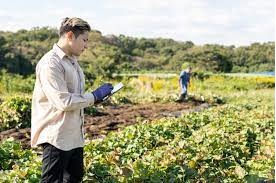The Rise of Sustainable Agriculture


Rise of Sustainable Agriculture: Agriculture is one of the most important sectors of the global economy, providing food and raw materials for millions of people worldwide. However, traditional agriculture practices have long been criticized for their negative impact on the environment, including soil degradation, water pollution, and loss of biodiversity. In recent years, a new approach to agriculture has emerged, known as sustainable agriculture, which aims to reduce the environmental impact of farming while still providing food and fiber for a growing population.
Focuses on producing food
Sustainable agriculture is an approach that takes into account the entire food system, from seed to plate, and focuses on producing food in a way that is environmentally, economically, and socially responsible. This includes practices such as reducing the use of harmful chemicals, conserving soil and water resources, and promoting biodiversity. It also involves a focus on the well-being of farmers, workers, and communities, as well as a commitment to fair trade and transparent business practices.
Consumer demand for food
One of the key drivers of the rise of sustainable agriculture has been consumer demand for food that is produced in a responsible and ethical manner. This has led to a growing number of farmers, retailers, and processors adopting sustainable agriculture practices and marketing products that are certified as organic, fair trade, or sustainably grown. This trend has also been driven by increased awareness of the environmental and social impacts of traditional agriculture practices and the need for more sustainable approaches to food production.
Development of new technologies and techniques
Another factor contributing to the growth of sustainable agriculture is the development of new technologies and techniques that can help farmers reduce their impact on the environment while increasing their yields. This includes the use of precision agriculture, which uses data and analytics to optimize crop production, and the development of new crops that are more resistant to pests and diseases. Additionally, there has been an increase in the use of agroforestry, which involves planting trees in and around agricultural land to provide shade, reduce erosion, and improve soil health.
Supported by government policies
The rise of sustainable agriculture has also been supported by government policies and initiatives, which have provided funding and support for farmers and organizations working to promote sustainable practices. This includes programs that provide training and education, as well as initiatives to promote sustainable food systems and local food networks. Additionally, there have been a number of international agreements and initiatives aimed at promoting sustainable agriculture, such as the United Nations’ Sustainable Development Goals.
Conclusion
In conclusion, the rise of sustainable agriculture is a response to the growing global demand for food that is produced in a responsible and ethical manner. It represents a new approach to food production that is based on principles of environmental and social responsibility and that is being driven by consumers, farmers, businesses, and governments around the world. As the world continues to grapple with the impacts of climate change and other environmental challenges, sustainable agriculture will play an increasingly important role in ensuring that our food systems are both sustainable and equitable.



